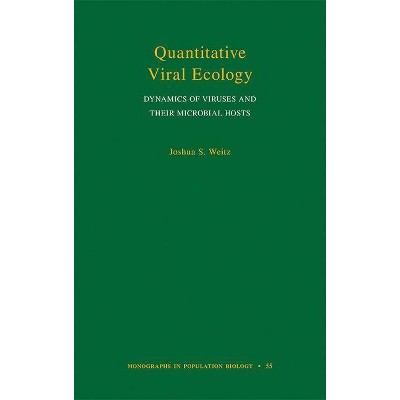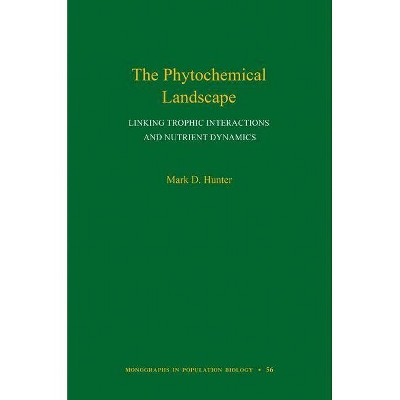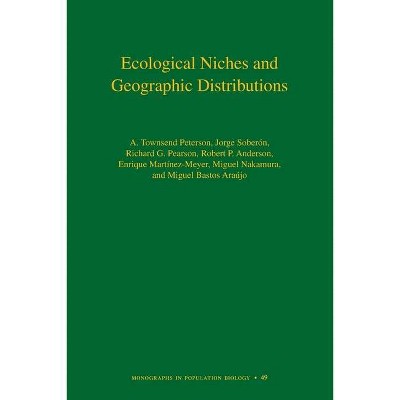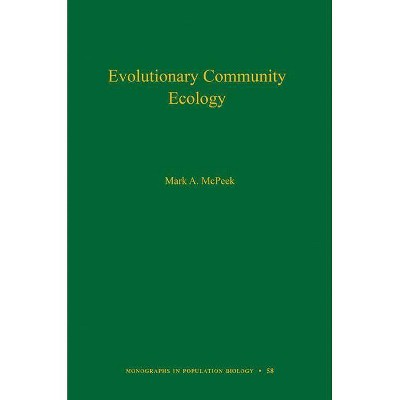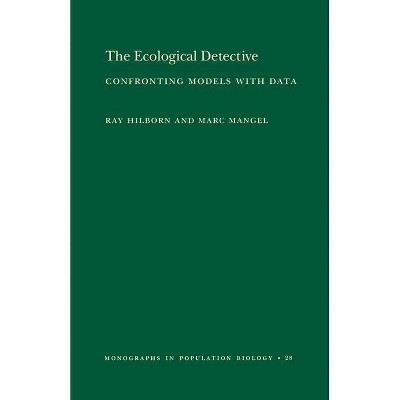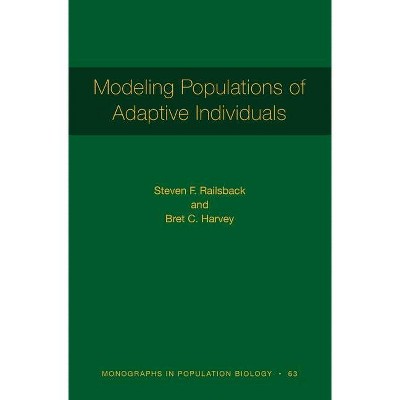Mutualistic Networks - (Monographs in Population Biology) by Jordi Bascompte & Pedro Jordano (Hardcover)
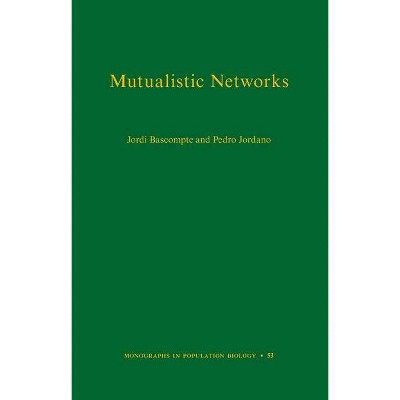
Similar Products
Products of same category from the store
AllProduct info
<p/><br></br><p><b> Book Synopsis </b></p></br></br><p>Mutualistic interactions among plants and animals have played a paramount role in shaping biodiversity. Yet the majority of studies on mutualistic interactions have involved only a few species, as opposed to broader mutual connections between communities of organisms. <i>Mutualistic Networks</i> is the first book to comprehensively explore this burgeoning field. Integrating different approaches, from the statistical description of network structures to the development of new analytical frameworks, Jordi Bascompte and Pedro Jordano describe the architecture of these mutualistic networks and show their importance for the robustness of biodiversity and the coevolutionary process. <p/> Making a case for why we should care about mutualisms and their complex networks, this book offers a new perspective on the study and synthesis of this growing area for ecologists and evolutionary biologists. It will serve as the standard reference for all future work on mutualistic interactions in biological communities.</p><p/><br></br><p><b> From the Back Cover </b></p></br></br><p>"Until recently, the study of mutualism was replete with lovely natural history details, but largely divorced from ecological theory. In this fine book, Bascompte and Jordano take an important step toward rectifying this situation, by applying a rich array of network tools and phylogenetically informed analyses to webs of mutualistic interactions. The authors deftly synthesize a wide range of empirical case studies and theoretical perspectives, draw a number of intriguing and unexpected conclusions, and provide useful, detailed methodological appendices which will facilitate future studies of mutualism in a community context."<b>--Robert D. Holt, University of Florida</b></p><p>"This engaging book is required reading for anyone interested in how the web of life is organized. With impeccable scholarship, a broad and careful presentation, and nuanced interpretation, it probes deep questions about the structure of biodiversity, and weaves innovative approaches with insightful interpretations."<b>--John Thompson, University of California, Santa Cruz</b></p><p>"This useful book examines the structure of mutualistic networks by delving into emerging structures from mutualistic network research, explaining what drives the structure, and investigating its implications on the robustness of ecological communities. Comprehensively reviewing this important field, this work will find a significant readership and promote further research."<b>--Kevin McCann, University of Guelph</b></p><p/><br></br><p><b> Review Quotes </b></p></br></br><br><i>Mutualistic Networks</i> is a book that presents a highly dynamic field in its entire breadth and historic development. [A]nyone interested in a passionate layout of a multifaceted and ecologically exciting research area will want to read it.<b>---Carsten F. Dormann, <i>Basic and Applied Ecology</i></b><br><br>[T]his excellent and unique book provides novel insights into ecological and coevolutionary dynamics of interacting species.<b>---Wesley Dáttilo, <i>Journal of Complex Networks</i></b><br><br>Bascompte and Jordano . . . logically and thoroughly guide the reader through the theories and tools used to understand, and the importance of understanding, the complexity of mutualistic networks.<b>---Luke S. O'Loughlin, <i>Austral Ecology</i></b><br><br>The book thus serves as a comprehensive introduction to anyone interested in using network techniques to analyze multispecies networks and provides a gentle lead into the techniques available, which are often quite complex and can easily be misapplied. Everything is set out lucidly, and the logic behind different network parameters and their analysis is made clear, so I found it straightforward to use network analysis on some of my own data with pleasing results. . . . Highly relevant for general conservation biology.<b>---David Nash, <i>Conservation Biology</i></b><br><br>Winner of the 2016 BES Marsh Christian Trust Book Award, British Ecological Association<br><br>[A]ll ecologists will benefit from reading [<i>Mutualistic Networks</i>], giving this audience a better understanding of the network perspective on mutualism.-- "Choice"<br><br>Making a case for why we should care about mutualisms and their complex networks, this book offers a new perspective on the study and synthesis of this growing area for ecologists and evolutionary biologists. It will serve as the standard reference for any future work on mutualistic interactions in biological communities.-- "Biotechnology, Agronomy, Society and Environment"<br><p/><br></br><p><b> About the Author </b></p></br></br><b>Jordi Bascompte</b> is professor of ecology at the University of Zurich. He is the coauthor of <i>Self-Organization in Complex Ecosystems</i> (Princeton). <b>Pedro Jordano</b> is a professor at the Spanish Research Council and honorary professor at the University of Sevilla.
Price History
Price Archive shows prices from various stores, lets you see history and find the cheapest. There is no actual sale on the website. For all support, inquiry and suggestion messages communication@pricearchive.us
